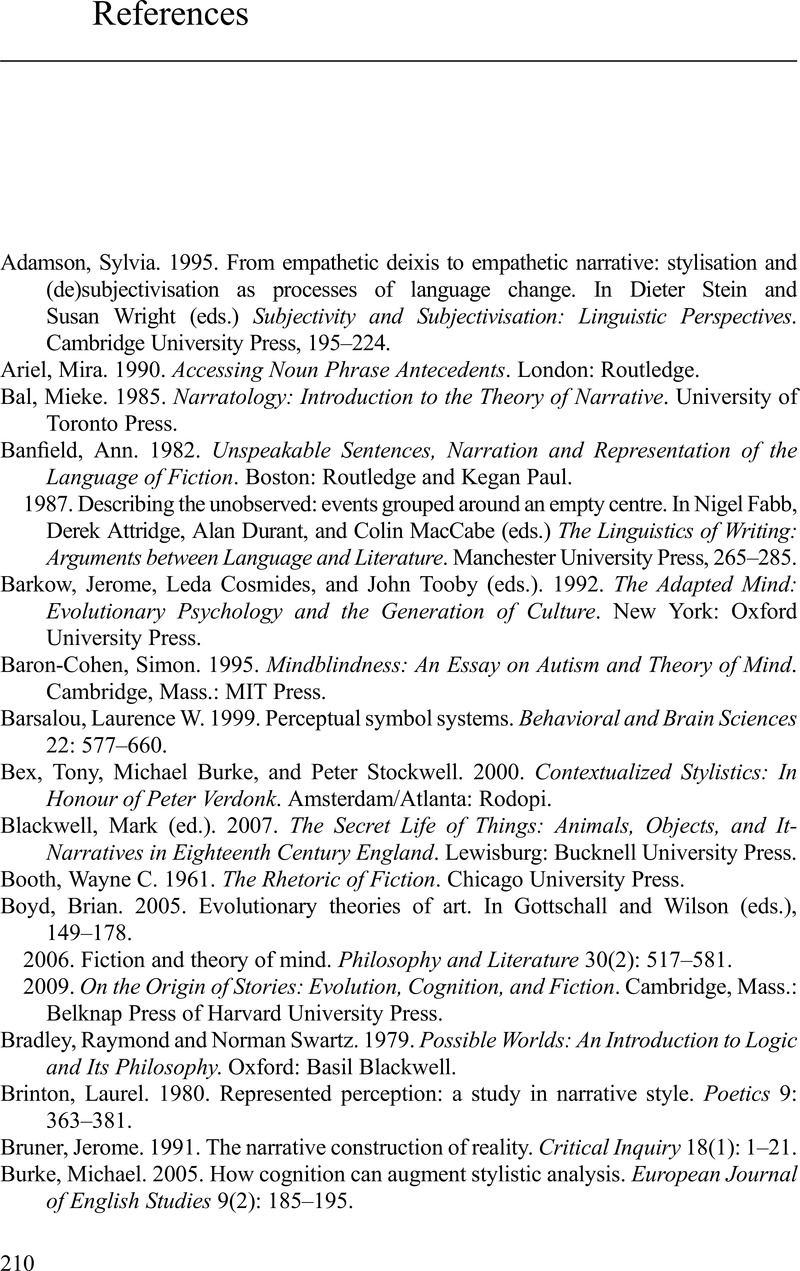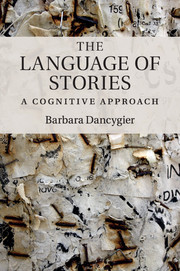Book contents
- Frontmatter
- Contents
- Figures
- Acknowledgements
- Introduction
- 1 Language and literary narratives
- 2 Blending, narrative spaces, and the emergent story
- 3 Stories and their tellers
- 4 Viewpoint
- 5 Referential expressions and narrative spaces
- 6 Fictional minds and embodiment in drama and fiction
- 7 Speech and thought in the narrative
- 8 Stories in the mind
- Notes to the text
- References
- Literary works cited
- Index
- References
References
Published online by Cambridge University Press: 05 November 2011
- Frontmatter
- Contents
- Figures
- Acknowledgements
- Introduction
- 1 Language and literary narratives
- 2 Blending, narrative spaces, and the emergent story
- 3 Stories and their tellers
- 4 Viewpoint
- 5 Referential expressions and narrative spaces
- 6 Fictional minds and embodiment in drama and fiction
- 7 Speech and thought in the narrative
- 8 Stories in the mind
- Notes to the text
- References
- Literary works cited
- Index
- References
Summary

- Type
- Chapter
- Information
- The Language of StoriesA Cognitive Approach, pp. 210 - 222Publisher: Cambridge University PressPrint publication year: 2011

